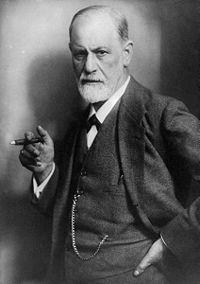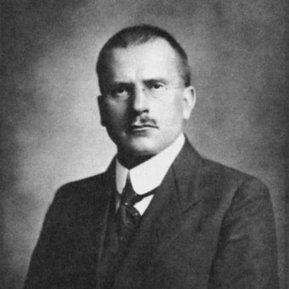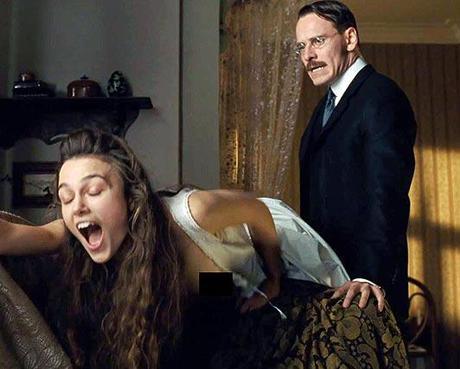
Oral fixation?
Since I started university I have been interested in psychology. The subject actually started to intrigue me once we had started a course called psycholinguistics (I studied applied linguistics). How language is organized in our brains fascinated me; how ideas and words are linked together. An example that is often named, and well-known – is the ‘Freudian Slip’. According to Freud, a speaker can have more than one idea in his mind at one time and almost every speech error is caused by the “intrusion of repressed ideas from the unconscious into one’s conscious speech output” (Carroll, 1999). An example of this would be what President George Bush (Sr.) said during the 1992 campaign: “I don’t want to run the risk of ruining what is a lovely recession (reception). (Newsweek, 1992).
Freud is, of course, seen as the father – pun intended – of psychoanalysis and we have ‘crossed paths’ many a time when I was taking a minor in psychology. Even though his theories have been subject of enormous amounts of criticism, they remain immensely popular. That might have something to do with the fact that sexuality plays a big part in his theories. The Id, as he calls it, present from birth, is the basest part of our personality and continually tries to strive for the fulfilling of our (mostly sexual) pleasure. The Ego develops as a child develops and makes us try to balance the gaining of pleasure with what is socially acceptable. The Superego, in turn, decides whether the Ego did a good job. When something goes wrong in the development of a child, that child can get stuck in a certain phase of this development (oral stage, anal stage, phallic stage and the genital stage). The anal personality is widely known: paying attention to detail, obsessive, stingy and defiant.
 Yesterday, I decided to watch A Dangerous Method, a film directed by David Cronenberg (best known for The Fly and A History of Violence) and doubly adapted (first it was a non-fictional book, then a play). It tells the story of the relationship between Carl Jung (Michael Fassbender) and Sabina Spielrein (Keira Knightley) starting from when Sabina is brought to the psychiatric hospital in Zürich where Jung works. She was completely hysterical when she was brought in and Jung tries to discover what is behind her hysteria by doing word association and dream interpretation. At a session Sabina confesses that, when she was a child, her father spanked her when she was naked and that she was aroused by it. This, in turn, made her feel humiliated and she can’t stand that feeling.
Yesterday, I decided to watch A Dangerous Method, a film directed by David Cronenberg (best known for The Fly and A History of Violence) and doubly adapted (first it was a non-fictional book, then a play). It tells the story of the relationship between Carl Jung (Michael Fassbender) and Sabina Spielrein (Keira Knightley) starting from when Sabina is brought to the psychiatric hospital in Zürich where Jung works. She was completely hysterical when she was brought in and Jung tries to discover what is behind her hysteria by doing word association and dream interpretation. At a session Sabina confesses that, when she was a child, her father spanked her when she was naked and that she was aroused by it. This, in turn, made her feel humiliated and she can’t stand that feeling.
“Humiliation… Any kind of humiliation. I can’t – I can’t bear to see it. It makes me feel nauseated.”
Sabina is a very intelligent woman and had always aspired to become a doctor. When her sessions with Dr. Jung make satisfactory progress, he invites her to help him during experiments. In the mean time, his wife (Sarah Gadon) is pregnant with their first child. Jung also starts corresponding with Dr. Freud (Viggo Mortensen). When Jung and Freud meet, Jung doesn’t feel that he’s being taken very seriously by the psychoanalyst and he feels belittled. However, they proceed to build a ‘friendship’. Then, one day, Otto Gross (Vincent Cassel) is sent to Jung’s hospital by his father. It soon appears that Gross, who is also a doctor and a psychoanalyst, has rather eccentric ideas when it comes to sexuality. He was a strong advocate of free love, rejecting any kind of monogamous relationship. In Jung’s sessions with Gross, Gross manages to turn some of Jung’s views upside down which leads Jung to eventually start an affair with Sabina.
Jung brings a stop to this affair after a while, but they take it up again as he helps Sabina with her dissertation. In this dissertation she combines, funnily enough, Freud’s insight of the “death drive” and Jung’s insight of “transformation”, arguing that great conflict is necessary to come to original creation and hence is inextricably linked to a drive to destruction. When Jung ends their affair for a second time, Sabina appeals to Freud in a letter. Freud then writes to Jung asking for an explanation to which Jung responds by providing him with false information. Freud, defending Jung, then writes to Sabina who then proceeds to demand of Jung that he tells Freud the truth about their relationship which Jung eventually does. However, when Jung tries to publish his thoughts and ideas, Freud uses this information to bully Jung because he thinks his ideas are too vague and woolly.
I think the film is great in showing that, although scientists claim to be objective, they are oftentimes heavily influenced by their own experiences and relationships and in that the world of academia can be pretty ruthless. For example, I think that Jung already had his eyes set on Sabina before Otto Gross came into the picture. Otto Gross just happened to say what Jung desperately wanted to hear: that he would be right to pursue a relationship with Sabina. He proceeds to amend his own theory (principles) to suit his own needs. In Freud’s words: he adjusts his Ego to make his Superego approve of his giving in to his Id!
 I felt uncomfortable when Sabina told Jung the story of her father spanking her naked and her being aroused by it. Their subsequent sexual relationship, which also entailed spanking and bondage, disturbed me. It’s probably my Superego talking, saying that he’s wrong to enter in that kind of relationship with her, using his position. It’s the taboo of Sabina’s apparent Electra complex.
I felt uncomfortable when Sabina told Jung the story of her father spanking her naked and her being aroused by it. Their subsequent sexual relationship, which also entailed spanking and bondage, disturbed me. It’s probably my Superego talking, saying that he’s wrong to enter in that kind of relationship with her, using his position. It’s the taboo of Sabina’s apparent Electra complex.
If the trailers of other Cronenberg films (Dead Ringers, Videodrome and Scanners) I watched on YouTube are a good indication of his work, A Dangerous Method appears to be one of his more accessible films. I liked the film for its story, although I found that the characters remained somewhat flat.
I’m still hoping I’ll get the chance to see Cosmopolis, but I’ll have to go to Amsterdam to see it.

